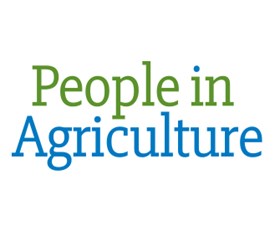Finding Work

Introduction
You’ve thought about what type of work you would like to do, now it’s time to find the job!
There are a number of web sites that advertise for either industry specific roles or general employment in the agriculture industry. Researching and searching online is a great first point of call, especially if you are looking to move into a new location or industry to get a sense of what employment opportunities are available.
While these sites are great to have, and you will be able to find many positions advertised online, a lot of positions within the industry may not be formally advertised.
Word of mouth is still a very powerful tool in all areas of employment, especially in regional areas where everyone knows everyone. It pays to keep in touch with any contacts you make when studying, training, attending careers expos, undertaking work experience, or completing volunteer work. Think about the best way to check in with your existing contracts and people you know outside the usual employment channels. For example, sporting teams or social groups that you are involved with may provide a chance to introduce yourself to potential employers.
Have a look at some of the sites below for more information about current and upcoming advertised positions in Agriculture.
Australian Government’s jobactive site is a free resource for employers and employees
Backpacker and traveller websites, such as Gumtree and Harvest Trail
Gumtree is designed to connect people who are looking for work all around Australia. Gumtree has an App called My Gumtree (iPhone and iPad). Job hunters and employers can contact each other within the App
Ag Careers offers information on agricultural jobs around the world and can locate specific regions in each country
Careerjet is easy-to-use and offers a range of agricultural jobs around Australia (and also has an App)
There are a number of fee-for-service private recruitment companies that specialise in the agricultural industry. Some of these include NetworkAG, Agricultural Appointments, Rural Enterprises, and AG Workforce
Seek has the thousands of jobs advertised for all different careers. It doesn’t have the same number of on-farm jobs as other sites, but is still relevant for agricultural jobs
Don’t forget about the value of social media and regionally based development programs. People working in these programs may have good contacts within the industry and be informed about available positions before they are advertised. Contacts may also advertise positions informally through a specific Facebook page / group or on their Twitter accounts
Resumes, cover letters and job applications
A well planned, thought through resume and cover letter are essential. They are your ‘foot in the door’ when applying for work in any industry. It is crucial that your resume and cover letter are well presented as they will often form the first impression potential employers have of you. Badly written or poorly presented resumes may be dismissed before they are even read.
It is equally important that your resume is truthful, concise and relevant. You may have had years of experience coaching the local soccer club – if you can, relate this directly to the job you are applying for. Make sure you highlight your transferable skills and experiences. Your employer should be able to get a sense of you as a person through your application but they don’t need to know about every single achievement. It is a good idea to tailor your resume based on the job you are applying for. Your resume should only include information that is relevant to the position description, or that speaks to your qualities as an employee.
Being truthful on your resume and job applications is important for a number of reasons. You want to start a new job and build a good working relationship with your employer based on the facts. It’s ok to admit you don’t know how to do something or don’t have experience in a certain area, just make sure to also add that you are a quick learner and always keen to pick up new skills.
Also think about safety – both yours and others in the workplace. It is important your employer knows how much experience you have in operating a piece of machinery or equipment. If you are not sure on how it works, this could cause serious injury to you or other people on the farm. An employer will appreciate a person who acknowledges their limitations but is eager to learn new skills.
When writing a cover letter or job application, make sure you read the position description carefully and address the skills and knowledge required for the position. List any qualifications or training you have completed or are currently undertaking and any plans you have for future training. Avoid using phrases like ‘I think I am a reliable worker’, instead be confident in your own skills ‘I am a reliable worker.’ You should try and sell yourself as the best person for the job while staying truthful and ‘to the point’. Make yourself stand out.
There are a number of web sites, both government and private employment / recruitment agencies, that offer free advice or help in writing resumes and job applications. Some of these are listed below to get you started:
- Youth central is an Australian Government site with information about applying for jobs in general.
- Seek has a page on advice for resume writing.
- Career One has a short video and also written advice regarding Australian resumes.
- Rural enterprises is more aimed at attracting overseas workers to Australian jobs but still has some good advice about resume writing.
Interviews
The number one tip for job interviews is to be prepared. There are a number of ways you can prepare for a job interview and some of these are listed below.
-
Research the farm business and the industry
By knowing about the industry or farm, you will show the interviewer that you are serious about the position and have already taken steps to find out more information. This also shows that you are motivated and able to show initiative, and that you’re serious about applying for the role.
-
Prepare some questions about the position
Again, this shows the interviewer that you are prepared and have a real interest in the position. It’s a good idea to write down the questions and refer to them in the interview as you can often be nervous and forget what you wanted to ask. Quite often the interview will include a farm tour so keep this in mind when you are thinking about your questions.
-
Know where you are going
This may sound simple but if the interview is in an area you don’t know very well, it pays to check maps and traffic conditions. The last thing you want to do is arrive late for an interview. You could do a “test run” getting there beforehand (especially if distance is involved). Allow plenty of time.
-
Prepare your paperwork
Your interviewer should have a copy of your resume, job application or cover letter but it doesn’t hurt to take a copy with you just in case. You may also need to take any qualifications, certificates, tickets, references, or licences. You should have the names and contact numbers of at least two people who can act as referees if needed, at least one should be a former employer, supervisor or teacher. Do check with your referees first that it is OK to give out their contact details. It is also good to let them know they type of work you are applying for so they can give relevant information when contacted.
At the interview
-
Be early
Aim to arrive about 10 -15 minutes early, just in case! This shows the interviewer that you are punctual and prepared. They may have a number of other things to do that day and won’t be impressed if they have to wait around for you. If anything does happen that is out of your control, call the interviewer as soon as possible and ask to reschedule.
-
Make eye contact
Eye contact and positive, open body language are important in an interview. They show interviewers that you are engaged, confident, and willing to listen. Sit straight in your chair and try to avoid any nervous twitches or traits such as playing with hair or jiggling feet or legs as these may distract from what you are saying. If there is more than one interviewer, engage each person through eye contact and direct answers to their questions.
-
Ask questions and take notes
Don’t be afraid to take notes during the interview, especially when the interviewer is answering your questions or describing the role. If you are nervous, it’s often hard to remember what has been said or discussed. It’s likely that you will see the interviewer taking notes also.
-
Thank the interviewer
At the end of the interview, thank the interviewer for their time and ask when you can expect to hear back from them. If you haven’t heard from them in the time they give, it is ok to send a follow up email or make a phone call.
An interviewer will need to ask a lot of questions to find out about your work history and to get a sense of ‘you as a person’. However, there are some questions that are NOT OK for them to ask you. Questions around race, religion, sexual orientation, etc. may be discriminatory and your interviewer may not be entitled to ask such questions. See the employer section Finding and interviewing employees for more information.
You can find more interview tips from the Agricultural Recruitment website
Sample interview questions – Word Doc
Sample Resume and cover letter template – Word Doc





